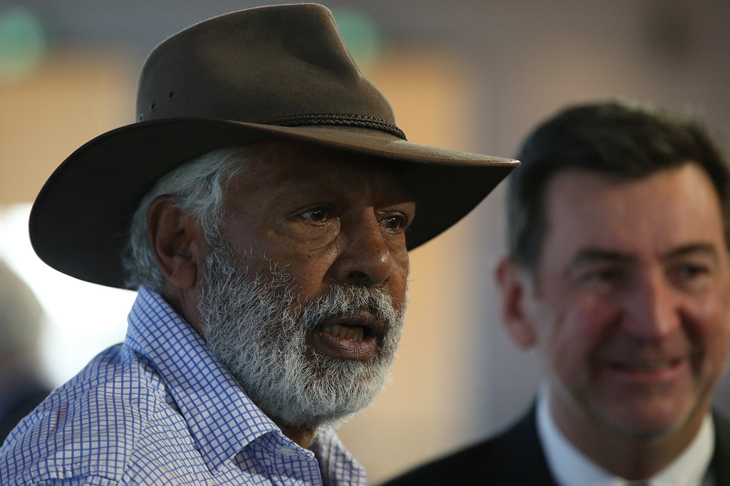Standing on the banks of the Swan River the skyline tells you how Perth retains observable links with its regional cousins, cultural links cast off by many eastern seaboard capital cities decades ago. Whether it be the shining buildings of Australia’s largest resource companies or the fly-in fly-out lifestyle experienced and witnessed by so many, there is a real and abiding appreciation of where the state’s livelihood is generated. Yet there are signs that Perth is succumbing to a similar fate of Sydney, Melbourne, and Brisbane, and this critical link between the city and regions is fading.
On the three-odd hour drive from Perth to Katanning in Western Australia’s Great Southern region, you pass wonderfully green, fertile and maintained farmland. It is a reminder that while we are the lucky country – geographically and climatically – we have made the most of our luck. These fields do not plough themselves, and the livestock do not wander unaided from the farmgate to the supermarket overnight. It is the hard work of farmers and pastoralists, along with their neighbours in the mining sector, who have provided the resources and wealth that has made Australia the nation it is today. But you will not hear that from our education system, inner-city media, and the woke activists that populate the offices of the big corporates. They have convinced many Australians that those who work on the land are the bad guys.
It is this very reason why the Institute of Public Affairs established the Australia: Our Future program, which has seen the team travel to key regional centres, visiting over 50 towns, over the past 18 months. That is why we are travelling through towns such as Katanning, Bridgetown, Augusta, Kudardup and Bunbury on this trip. Upon arrival in Katanning in the early afternoon the IPA team sits down with a dozen local farmers who, as you would expect, give it to us straight, unvarnished with no time for pleasantries. All of whom had four words on their lips: Aboriginal cultural heritage laws.
The farmers were on red alert as the commencement of the state government’s Aboriginal Cultural Heritage Act was merely days away. The legislation represents one of the single biggest attacks on our farming communities in Australia’s history.
The new laws mean that a farmer who seeks to make changes to their own land which is more than just 50 centimetres deep would require the advice and potential approval of an Indigenous elder.The legislation states that ‘Aboriginal cultural heritage means the tangible and intangible elements that are important to the Aboriginal people of the State, and are recognised through social, spiritual, historical, scientific or aesthetic values, as part of Aboriginal tradition’. In other words, the law defines Aboriginal cultural heritage to constitute practically anything.
Digging a new fence post, building a new shed, installing a new irrigation pivot, could now take years, if they go ahead at all. And the law applies to all properties of just 1,100 square meters or more, which is a fraction more than a quarter acre block.
Back on the road and west to Augusta and Kudardup, the concerns continue to build. Hourly news bulletins on local radio stations broadcast the concerns of farmers from around the state. And when it wasn’t the news, the radio was playing the state government’s hurriedly put together ‘public information’ ads designed to assuage the concerns of ropable farming communities. The bush-telegraph still remains the most effective communications tool in these parts and the Kudardup community hall is full of farmers that have heard there is a bunch of people from Melbourne who want to hear about what is happening to their farms.
Such was the lack of consultation, none of the farmers had any real idea of how they could actually comply with it. Besides anger and confusion, the overwhelming takeaway from our meetings is the feeling of betrayal. These communities have been ambushed by the inner-city elites and the political class, and were left to feel powerless. This is the thanks they get for doing their job of feeding the nation.
What makes this all the worse is that these new laws are just more regulation piled on top of a sector which is already over-regulated. While in Busselton the IPA released new research that showed, new laws aside, Western Australia’s farmers were already the most heavily regulated in the nation. WA farmers answer to up to 33 separate federal or state government agencies with regulations 15 per cent higher than the national average.
The sad irony is farmers are victims of their own success. They have become so productive over the years that the number of people farming has declined even as output has greatly increased. This is of benefit economically and financially, but costly politically, as political representation is based on population. If population shrinks, so too does political protection. In a sense, our famers have been punished for their productivity and hard work.
News arrives that the Western Australian government was forced to back down on the commencement date of some of the more onerous sections of their new laws. A momentary sigh of relief for these communities, who know that only the pause button has been hit, not the delete button. Discussions turn to how to get out of the perpetual game of defence and onto offence. There is a growing awareness that the hearts and minds of the community were slowly being lost to radical anti-development activism. Too many now believe that farmers are the bad guys who destroy the environment, undermine animal welfare, and cause ‘climate change’, rather than being the good guys who exemplify our national values and put food on the table of Australians and export around the world.
There are some outstanding organisations, such as the Pastoralists and Graziers Association, led by the formidable Tony Seabrook, which fight hard, albeit often alone. Every farmer knew more must be done, but they also know they face professional, coordinated, well-funded, and relentless campaigning from the political class and inner-city elites. This must be countered with a permanent advocacy of its own, to ensure the community understands the indispensable role of those on the land and what our regions mean to our daily lives.
Got something to add? Join the discussion and comment below.
Get 10 issues for just $10
Subscribe to The Spectator Australia today for the next 10 magazine issues, plus full online access, for just $10.
Daniel Wild is Deputy Executive Director at the Institute of Public Affairs.
You might disagree with half of it, but you’ll enjoy reading all of it. Try your first month for free, then just $2 a week for the remainder of your first year.














Comments
Don't miss out
Join the conversation with other Spectator Australia readers. Subscribe to leave a comment.
SUBSCRIBEAlready a subscriber? Log in